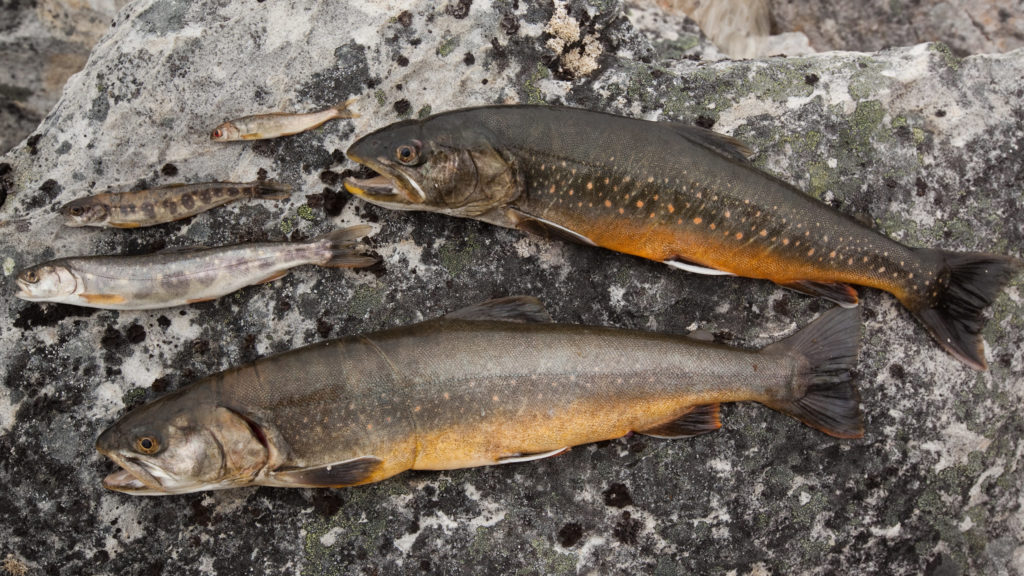The BBC reports one of the UK’s rarest fish is getting a chance to return to its historical breeding grounds on the River Severn. The little-known twaite shad, a member of the herring family, was once common in British waters with thousands of the fish migrating upstream in spring. Numbers dwindled after weirs constructed in the 19th Century posed barriers to migratory fish. A conservation project is trying to unlock the river for fish by creating routes around several weirs.
Tag Archives: fish
River Severn: Is a new law needed to help salmon?
The BBC reports a new salmon law is being proposed that could ban anglers from taking their catch home. The Environment Agency proposed the measure and said it was needed to protect salmon stocks that are in decline. Consultations are under way.
If the by-law was introduced it would apply to salmon fishing along the length of the River Severn. The Severn Fisheries Group, which represents 30,000 anglers, said that might encourage more poaching.
Freshwater project gets Arctic charr out of hot water

The Times reports Arctic charr is a rare and ancient fish in Britain, a remarkable survivor of the last Ice Age, but in recent times it has been suffering warming waters and pollution. Now a project has brought the fish back from the brink of extinction at a lake in the Lake District.
The beautiful rose-tinted fish is closely related to salmon and trout. As the great ice sheets retreated about 12,000 years ago it colonised freshwaters in the British Isles and now lives in deep lakes in Scotland, north Wales, the Lake District and Ireland.
The fish needs waters below 8C for its eggs to survive but as waters have warmed in recent times populations have struggled to survive in Britain, apart from Shetland, and many of the native populations have become extinct.
Britain’s rivers should be returned to their ‘natural state’ to help save the endangered eel, says WWF
The Daily Telegraph reports Britain’s rivers should be returned to their ‘natural state’ with fewer man-made weirs and dams in order to help save the eel, the WWF says in a new report.
A third of freshwater fish globally are threatened with extinction due to a lack of care for our rivers, according to new findings from the animal welfare charity. WWF is calling all governments, including the UK’s, to back the implementation of a global Emergency Recovery Plan for freshwater biodiversity, as part of an ambitious agreement at the UN Convention on Biological Diversity conference later this year.
We know FNW members will feel this one close to their hearts as they fell in love with eels during the excellent Zoom talk by Kathy Hughes.
Supertrawlers ramp up activity in UK protected waters during lockdown
The Guardian reports fishing time in first half of 2020 almost double that in whole of last year, Greenpeace says. Supertrawlers vastly stepped up their fishing in the UK’s protected waters during the coronavirus lockdown earlier this year, while most of the UK’s smaller vessels were confined to port.
Atlantic salmon numbers are falling in British rivers
iNEWS reports according to the Atlantic Salmon Trust’s Missing Salmon Project, less than five per cent of salmon that leave Britain’s rivers return. Time was when salmon swam through the Thames in London, en route to their Berkshire breeding grounds. Indeed, the river was once described as a “fishful river”, and a 14th-century law was passed for the saving of its salmon.
Today, although many kinds of fish have multiplied in the Thames in the past few decades, you’d be lucky to find the majestic salmon there. But it’s not just the Thames that is lacking salmon. Wild Atlantic salmon have significantly declined in other British rivers.
‘To save our fish, we must first find ways to unblock UK’s rivers,’ say scientists
The Guardian reports Swansea University scientists say the proliferation of weirs, dams and culverts is now creating a threat to wildlife.
Near the mouth of the River Afan in Port Talbot, south Wales, a pair of seagulls were to be seen last week pecking in a leisurely way at a dead salmon lying on a gravel bank. It was an unusual sight. Salmon are rarely found in the Afan these days.
The scene may have been unexpected, but it nevertheless illustrates a growing problem, say researchers – one that already affects rivers across Europe and could pose even greater threats to habitats and wildlife in future.
